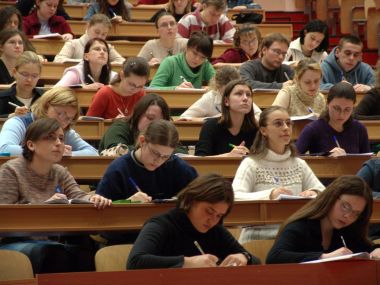National presidents ban University of Virginia sororities from frat events

In the wake of the University of Virginia (UVA) rape scandal, the presidents of the National Panhellenic Conference (NPC) banned their sororities from participating in events during Boys' Bid Night on Saturday.
The fraternity event marks the end of rush week, and is one of the biggest party nights on college campuses. At UVA, the night had been linked to binge drinking and allegations of sexual assault.
Traditionally, sororities party with their brother fraternities on bid night, but NPC sorors are being forced to abstain.
"We believe the activities on Men's Bid Night present significant safety concerns for all of our members and we are united in our request that the sixteen NPC sororities not participate," Alpha Delta Pi international president Tammie Pinkston wrote in a letter to member sororities.
The decision comes weeks after a gang rape allegation published in Rolling Stone shook the campus and the nation.
A female student at UVA alleged that she was attacked at a frat house as part of an initiation ritual, and was dissuaded from reporting the crime by her friends.
Many facts of the case were not verified by the magazine, and were found to be untrue after other news outlets investigated.
Before the Rolling Stone story was published, UVA had been under investigation for years by the Education Department for their handling of sexual violence cases.
Those opposing the NPC's decision acknowledged that there are problems on campus, but said that banning the sororities was not the answer.
"Instead of addressing rape and sexual assault at UVa, this mandate perpetuates the idea that women are inferior, sexual objects," a petition protesting the ban read.
"It is degrading to Greek women, as it appears that the [National Panhellenic Conference] views us as defenseless and UVa's new fraternal policies as invalid.
"Allowing the NPC to prevent us from celebrating (what used to be) a tight-knit community, sends the message that we are weak."
Over 2,400 people have signed the petition.











